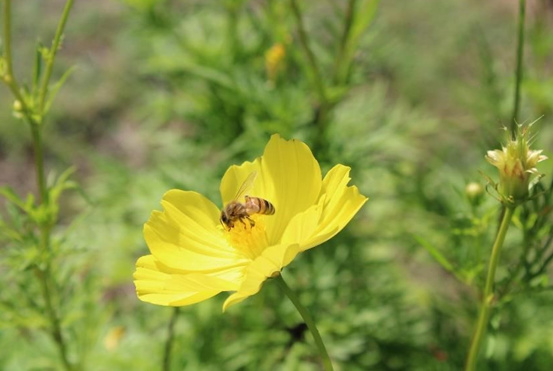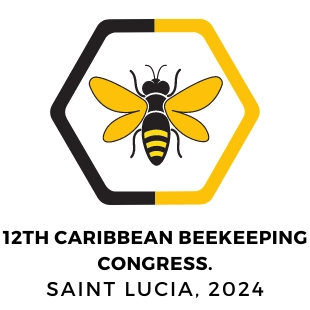Beekeeping from My Perspective
Coming from a background like mine, I appreciate every living thing, except maybe roaches. I see how we are all interconnected, and interdependent. I knew that bees support conservation and support food security. However, to see bees hard at work brings a new level of appreciation for these tiny, yet powerful creature.
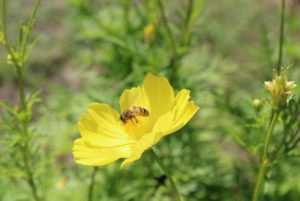
Figure 1: Bee collecting nectar and pollen from a flower. – picture by N. Lawrence
The Antigua Beekeepers Cooperative implemented their GEF Small Grants Funded project in 2021. Their project was heavily supported by the Ministry of Agriculture, Fisheries and Barbuda Affairs (MoA) and the Inter-American Institute for the Cooperation on Agriculture (IICA).
In November 2021, Master Beekeeper, Mr. Richard Matthias, of Iyanola Apiculture Collective, was flown in to Antigua to work with the local beekeepers, giving them training on beekeeping best practices, review the health of the hives, and to verify the feasibility of rearing queens.
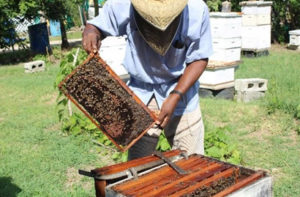
Figure 2: Mr. Langley inspecting a hive. Picture by N. Lawrence
Tagging along on the mission to review our local hives, we visited Mr. Langley’s apiary first. I followed a seasoned beekeeper into the apiary, taking cues from his lead, sans protective gear.
The bees were beautiful. I learnt to identify drones, how to mix the frames for maximum productivity of the hives, and how to bounce back from a sting from an agitated bee that got stuck in my hair.
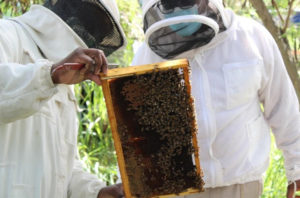
Figure 3:Hive inspection at Scotties Apiary, picture by N. Lawrence.
On to apiary two, at Scottie’s place, and I was warned that protective gear is a must. Those bees were quite aggressive, but the suit kept me safe. While the unnerving sounds of angry bees filled the air, I watched safely, in my suit, as seasoned beekeepers rearranged frames and beeboxes, and non-chalently pulled out stinger after stinger from their non-protected hands, as they worked.
When it was obvious that the bees were not happy to settle down, we decided to take a break before the next apiary visit. We walked up a hill and down another, closely trailed by a few dozen bees. As we waited for refreshments, and overcome by an overwhelming thirst, I cautiously took off my protective bonnet, only to be stung immediately. Strike two, and that, I swore, would be the last.
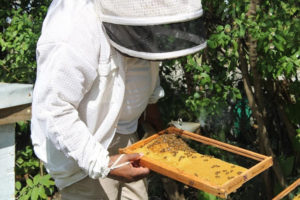
Figure 4: R. Matthias inspecting frames at BBC apiary, picture by N. Lawrence.
Hive Inspection at Scottie’s ApiaryThe apiaries at BBC were out in the open field. By then, I had learnt to distinguish a hive with a queen in it, to one that had no queen present, by simply listening to the hive. I had learnt to test for Varroa Mites, a mite than can have serious negative implications on the health and productivity of a hive. By the end of the day, I felt like a beekeeper myself. I could immediately decide if box had too many frames, if the frames could be constructed in a more efficient way, or if the frames needed to be shifted. The next day would be Barbuda, and let’s see how I would do!
The trip to Barbuda, our sister isle, was a quick 15-minute hop. It became amazing after I stopped holding my breath, maybe by minute three. I distinctly remember the moment I stopped breathing, when they closed the door to the tiny little aircraft, I couldn’t do this… We tried to book the entire 7seater, but one Barbudan was able to snag a seat, bumping off one of our team to a later flight. He quickly became fast friends with our team.
We landed and literally took off, to our first hive. O’Brien’s apiary was well-cared for. He was a relatively new beekeeper, who took pride in caring for his bees. He was already producing honey, and boy oh boy, what a distinct flavor that emanated from his honey. It was light, flowery, fragrant. His boxes were in good condition, and unlike the case in Antigua, no varroa mites were detected in his hives. It’s worth mentioning here that Barbudans are so protective of their bees, that we had to take only new or recently washed protective gear to Barbuda.
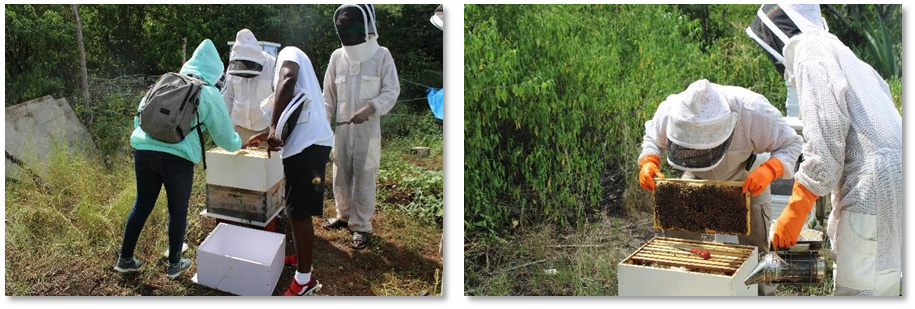
Figure 5:Hive inspections at O’Brien’s apiary, pictures by N. Lawrence.
Working in those suits under a hot tropical sun is not easy. I remember feeling safe enough, and thirsty enough that I took my gloves off. Moments later, I was running for my life as O’Brien’s bees found my unprotected hands and I was determined to not strike three with beestings, particularly because I was already suffering with a swollen forehead. I shouted to a Thaddeus, a member of our team, to grab my camera bag as I ran away. Thaddeus, shouted back, not right now, as I later realized that he was running too! That was the last that I saw of O’Brien’s bees that day, but my hands were safe! Later in the day, we visited Barrett’s bees. His was the only apiary that had survived the ravages of Major Hurricane Irma in 2017. Barrett admitted that he had not checked on his bees in a few weeks, and when we checked, there was a surplus of honey. Barrett’s honey was also delicious but a stark contrast from the flavour of O’Brien’s and they apiaries were in close proximity to each other.
While a highly successful, virtual beekeeping training and meeting took place in Antigua the evening before, an in-person meeting took place at the Fisheries Complex in Barbuda. The meeting began at 5pm, but participants were so engaged, that meeting did not conclude until 9:30 pm.
Tired, yet exhilarated, I went to bed in anticipation of another day with the bees. At daybreak, I set off with the team to Mr. Mussington’s apiary. Now, Mr. Mussington is a super intelligent man with many admirable abilities. He is a marine biologist, the principal at the only secondary school on Barbuda, an enthusiastic conservationist, an avid birder, and now, I learnt, a beekeeper. Mr. Mussington boasted the night before about his extremely flavourful honey. I was not to be disappointed!
At his apiary, we could see the love and care for the bees, and the diligent maintenance of his hives. We were able to do a varroa mite test here, just like the other sites visited in Barbuda, and as was expected, the test came back clean. A victory for Barbuda, a presumably varroa mite-free habitat, perfect for queen-rearing. Here, we also piloted the use of QR codes to manage hives. A hive app was downloaded, and Mr. Mussington would be able to monitor his hives without having to disturb his bees too often. In the near future, the use of thermometers and monitors will aid in detecting temperature and behavior change in hives before a swarm will take place.
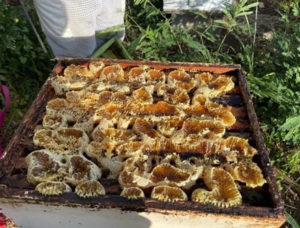
Figure 6:Honey super at Barrett’s Apiary, picture by R. Matthias
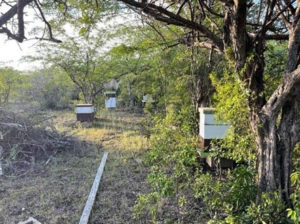
Figure 7: Mr. Mussington’s Apiary, picture by R. Matthias
The rest of the time on Barbuda was spent investigating queen-rearing sites and foraging grounds for bees. I remember seeing the pleased expression on Richard’s face when we were on Barbuda. Yes, he fell in love with our country through our bees.
It was time to leave Barbuda, and I felt energized and excited. I had just lived an experience, I never dreamt to have, and no, there was never a strike three from them bees; I had learnt my lesson! By the time we were heading back, the team was discussing how I could be set up with 4 boxes in my backyard. It was enticing. Stay tuned!

